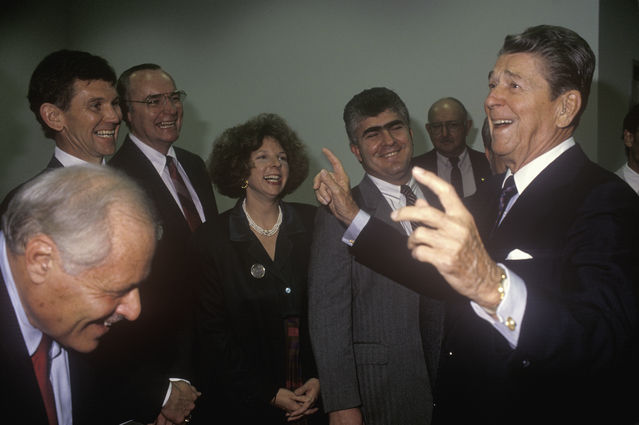You Don’t Know Jack (or Jeb, or Hillary)
Why we struggle to judge politicians objectively.
By Matt Huston published December 14, 2015 - last reviewed on June 10, 2016

Pin your hopes on a charismatic leader and it’s not easy to change your mind: We don’t like to admit that our faith was misplaced. In Political Animals: How Our Stone-Age Brain Gets in the Way of Smart Politics, writer and historian Rick Shenkman argues that because we evolved in intimate groups, we’re woefully under-equipped to appraise faraway personalities—or re-evaluate politicians who turn out not to be the people we thought they were.
Our trust in political leaders is often misplaced. Why?
We are all under the impression that when we see somebody on television, we can make a snap judgment the way we do when we meet in person. But the human brain isn’t designed to evaluate someone unless you can take in body language and eye movement. You’re not living in a small community, standing in front of a person you’ve gotten to know over years or decades. Yet we blithely go on thinking that we really understand these guys because we caught them in a presidential debate or a commercial.
Reagan’s staff, you note, thought the right visuals could overpower unflattering commentary.
This is something that drug companies have picked up on. Every night, the evening news cuts away to a drug commercial. The last third of each ad is the FCC-mandated warning about what this drug can do to you, but they run pretty pictures over those horrible side effects. If you’re actually listening, you’re practically on the floor crying.
How has imagery shaped our impressions of recent presidents?
Without his smile, Barack Obama would not have become president of the United States. We love smiles: Smiling is one of the ways that we bond with people. George W. Bush is a classic example of the guy you want to sit down and have a drink with. But we’re not electing these guys to be pub buddies; we’re electing them to make life-or-death decisions. The problem is, once we begin to trust someone, we want to support and then defend that person—but we’re actually defending our decision to trust. In the end, it’s always about what’s going on in the voter’s mind.
Have you ever felt misled in this way?
During Watergate, I was a 17-year-old student and a fervent defender of Richard Nixon. Two months before he resigned, finally, I bailed on him. I’ve been haunted for decades by what I saw in myself. No one was more up on the details, but I found a way to rationalize what he was doing.
How can we think more carefully about politicians?
We can’t talk ourselves out of our feelings, but we can second-guess ourselves and think about the context. Let a speech wash over you the way the politician intended. Then, take two minutes to remember the point at which the person got you laughing and smiling and excited and passionate—and try to figure out why. That’s the simplest way to stop yourself from being manipulated.
Emoters-in-Chief
When leaders get choked up, it’s an event. President Obama and House speaker John Boehner have both made headlines with their tears, and in 2008, Newsweek dissected “Hillary Clinton’s Emotional Moment” after she opened up about her motives for campaigning. “Nobody remembers the content of that breakdown, just the emotion,” says Arran Caza, a researcher at the University of Manitoba. A little vulnerability can reflect well on politicians, and a paper by Caza and colleagues proposes a reason. Surveying American and Chinese workers, they found that bosses who were seen as emotionally sincere were more trusted. Being real with followers may lead to positive assumptions about a leader’s character, Caza says: “If you’re honest about your feelings, that suggests you’re probably more honest in general.”
